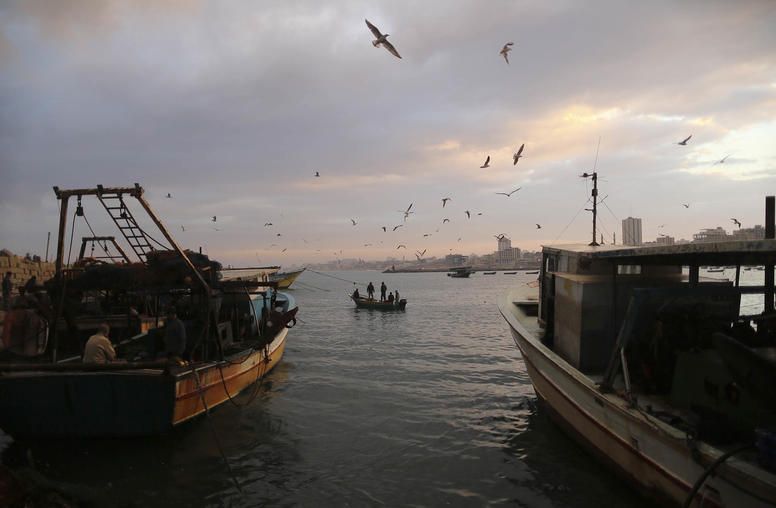Egypt's Warning Signs
Expert Lucy Kurtzer-Ellenbogen puts the protests in Egypt and in the region into context and discusses their historical and religious significance.
January 31, 2011
 As the crisis continues to unfold in Egypt, USIP talks with Lucy Kurtzer-Ellenbogen, program officer in the Center for Mediation and Conflict Resolution. Lucy’s work focuses on the Arab-Israeli conflict and identity. She previously worked with the State Department as an Arab language specialist and has spent considerable time in Egypt.
As the crisis continues to unfold in Egypt, USIP talks with Lucy Kurtzer-Ellenbogen, program officer in the Center for Mediation and Conflict Resolution. Lucy’s work focuses on the Arab-Israeli conflict and identity. She previously worked with the State Department as an Arab language specialist and has spent considerable time in Egypt.
- Having lived in Egypt and studied Egyptian politics, are there things that surprise you, politically, about this crisis; either its speed or how it is unfolding?
- Given your expertise in conflict resolution and non-violence in contemporary Islam, what is the context for these protests in Egypt and the region? Is there a historical or religious significance to these protests and recent developments?
- Read additional perspectives >>
Having lived in Egypt and studied Egyptian politics, are there things that surprise you, politically, about this crisis; either its speed or how it is unfolding?
One thing that is not surprising to me about the events unfolding in Egypt is the breadth and depth of discontent that Egyptians harbor toward their government. For the better part of a decade, protesters and activists have voiced dissatisfaction and anger with repressive policies, widening economic gaps, and a lack of movement towards democracy. The Mubarak government – specifically through the police force and other internal security agents – swiftly and effectively put down these protests, up through last week. What has been surprising to watch unfold over the past few days is the floundering of the Egyptian government in the face of these “post-Tunisia” protests.
The boldness of the protesters and lack (at least initially) of the heavy-handed response many of us have expected seems to signal that the emperor is quickly being disrobed. Whatever else one may say about Hosni Mubarak, we have counted for three decades on his being able to keep the most populous and most powerful Arab country under tight and stable control. As of today, at least, it appears he is losing his grip. Of course, with a situation this fluid, observations have a short shelf-life. Tomorrow, there could be a new government (or no government at all), or a massive and bloody crackdown.
Looking back at the past year, were there indications—signals that the West might have paid more attention to that suggested that things were unraveling?
No, I don’t think so, but first, a caveat: things are “unraveling,” I agree, but they are not yet completely “unraveled.” There could yet be a showdown to send the protesters reeling. Particularly in the absence of any organized leadership among the protesters, an aggressive display of force could nip things in the bud. But I think everyone has been caught off guard by what has transpired and continues to unfold. There seemed few signs that the government’s historic ability to channel, muzzle or monitor popular discontent, and to keep order, was compromised. If Sadat’s assassination, the fall of the Soviet Union, the toppling of Saddam Hussein, etc., failed to catalyze what we are seeing today, who would have thought that Mohamed Bouazizi setting himself on fire in Tunisia would have done it?
Additional Perspectives
- USIP Tracks the Unfolding Situation in Egypt
Check here for a comprehensive look at the situation in Egypt. - Former U.S. Ambassador on Initial Days of Protest
By Daniel C. Kurtzer, former U.S. ambassador to Egypt - Shibley Telhami on Egypt
By Shibley Telhami, former USIP Board Member (2000-2002) - Egypt Today: Historical Context of the Protests
By Qamar-ul Huda, senior program officer, Religion and Peacemaking Center of Innovation - Read more: USIP Tracks the Unfolding Situation in Egypt



